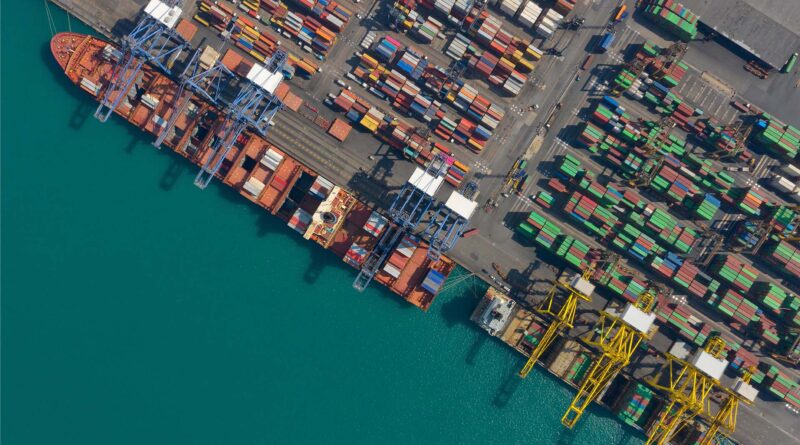Supply Chain Disruptions: Overcoming Import Logistics Challenges for UK Businesses
In the intricate world of international trade, UK businesses rely on efficient and resilient supply chains to seamlessly import goods from across the globe. However, the complexities of global logistics often present formidable challenges that can disrupt the smooth flow of imported goods, hindering businesses’ profitability and customer satisfaction. Understanding these disruptions and implementing effective strategies to overcome them is crucial for UK businesses to thrive in the face of global trade challenges.
Unraveling the Maze: Identifying the Obstacles
Supply chain disruptions, unforeseen events that impede the movement of goods and information, can manifest in various forms, posing significant hurdles for UK businesses:
- Transportation Bottlenecks: The Gateway to Delays
Congestion at ports and airports, infrastructure limitations, and labor shortages can cause delays in shipments, increase transportation costs, and lead to potential stockouts. These bottlenecks can wreak havoc on businesses’ operations, disrupting customer fulfillment and impacting their bottom line.
- Inventory Management Woes: Striking the Right Balance
Effective inventory management is crucial for ensuring a smooth supply chain and preventing stock outs or excess inventory. However, supply chain disruptions can disrupt inventory planning, leading to shortages or overstocking. Businesses need to strike a balance between maintaining adequate inventory levels and avoiding unnecessary storage costs.
Kindly visit https://www.pranilpolymers.com/caps-and-closures/ to know more.
- Customs Procedures Labyrinth: Navigating the Regulatory Landscape
Customs procedures and regulations can pose significant challenges for UK businesses importing goods. Navigating complex customs clearance processes, understanding import tariffs and duties, and complying with regulatory requirements can be time-consuming and error-prone, potentially leading to delays and additional costs.
- Economic and Political Volatility: Weathering the Storms
Global economic downturns, political instability, and natural disasters can disrupt supply chains, impacting production, transportation, and overall trade flows. These external factors can create uncertainty and hinder businesses’ ability to plan and forecast effectively.
Conquering the Challenges: Strategies for Resilience
To effectively navigate these supply chain disruptions and ensure a smooth import process, UK businesses can adopt a range of strategic approaches:
- Diversification: Embracing Multiple Routes and Sources
Diversifying transportation routes, carriers, and sourcing locations can reduce reliance on a single point of failure, minimizing the impact of disruptions. By spreading their supply chain across multiple partners and geographies, businesses can enhance their resilience and adapt to unforeseen challenges.
- Technology Empowerment: Leveraging the Power of Data and Automation
Leverage real-time tracking systems, demand forecasting tools, and customs automation software to gain visibility into supply chains, optimize inventory levels, and streamline customs clearance. Embracing technology can provide businesses with the insights and tools they need to make informed decisions and navigate disruptions proactively.
- Partnership Strengthening: Collaborating for Expertise and Support
Foster strong relationships with logistics providers, customs brokers, and industry experts to gain access to specialized knowledge, alternative solutions, and timely support in navigating disruptions. Building strong partnerships can provide businesses with a network of expertise and resources to effectively manage complex challenges. Kindly visit https://www.pranilpolymers.com/caps-and-closures/ to know more.
- Communication Enhancement: Fostering Transparency and Collaboration
Establish clear and transparent communication channels with suppliers, customers, and logistics partners to ensure timely information sharing, proactive problem-solving, and collaboration in managing disruptions. Effective communication can help businesses identify issues early, reduce delays, and minimize the overall impact of disruptions.
- Agility Fostering: Embracing Adaptability and Rapid Response
Implement agile supply chain management practices, such as scenario planning, risk assessment, and rapid response mechanisms, to adapt quickly to changing market conditions and unforeseen disruptions. Agility allows businesses to respond promptly and effectively to challenges, minimizing their impact on operations and customer satisfaction.
- Continuous Improvement: Embracing a Culture of Learning and Growth
Continuously monitor supply chain performance, identify areas for improvement, and implement data-driven strategies to enhance efficiency, reduce costs, and mitigate risks. A commitment to continuous improvement can help businesses continuously refine their supply chain processes and adapt to evolving challenges.
Conclusion: Building a Resilient Supply Chain for Sustainable Success
Supply chain disruptions are an inevitable reality in the global trade landscape. However, by adopting a proactive, technology-driven, and collaborative approach, UK businesses can effectively navigate these challenges, ensuring a resilient supply chain that supports their growth and success in the ever-changing world of international trade. By embracing diversification, leveraging technology, strengthening partnerships, enhancing communication, fostering agility, and committing to continuous improvement, UK businesses can confidently navigate the complexities of global trade and emerge as leaders in their respective industries.



